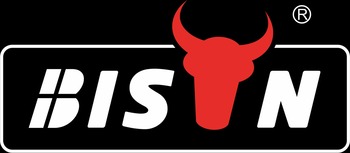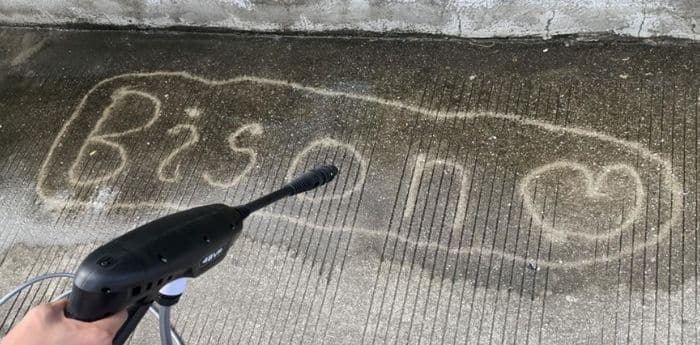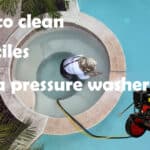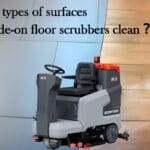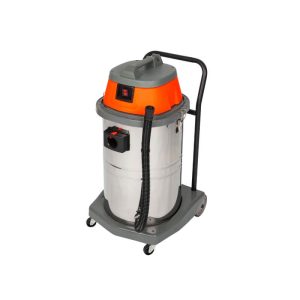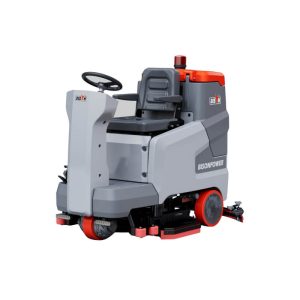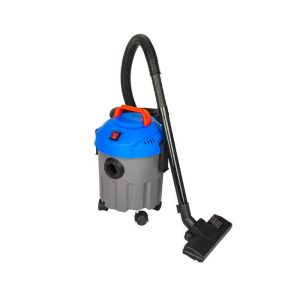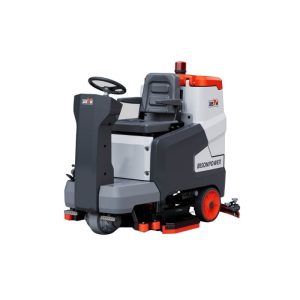
BISON Santy
Hello, I am Santy, the funder of bisonclean.com. I have been in cleaning machinery field for more than 5 years now, and the purpose of this article is to share with you the knowledge related to pressure washer from a Chinese supplier's perspective.
Table of Contents
Floor cleaning machines, such as vacuum cleaners, floor scrubbers, and sweepers, play a vital role in maintaining cleanliness and hygiene in various environments, from residential spaces to commercial facilities. The effectiveness of these machines largely depends on the battery chosen to power them. Floor cleaning machine with the right battery has better run time, efficiency, and lifespan, ultimately leading to better performance and user satisfaction.
Considering how vital batteries are, it’s critical to comprehend the subtle differences between various battery technologies and their advantages to make an informed choice. This blog aims to guide readers in choosing the best battery for their floor cleaning machines, ensuring optimal functionality and improved operational outcomes.
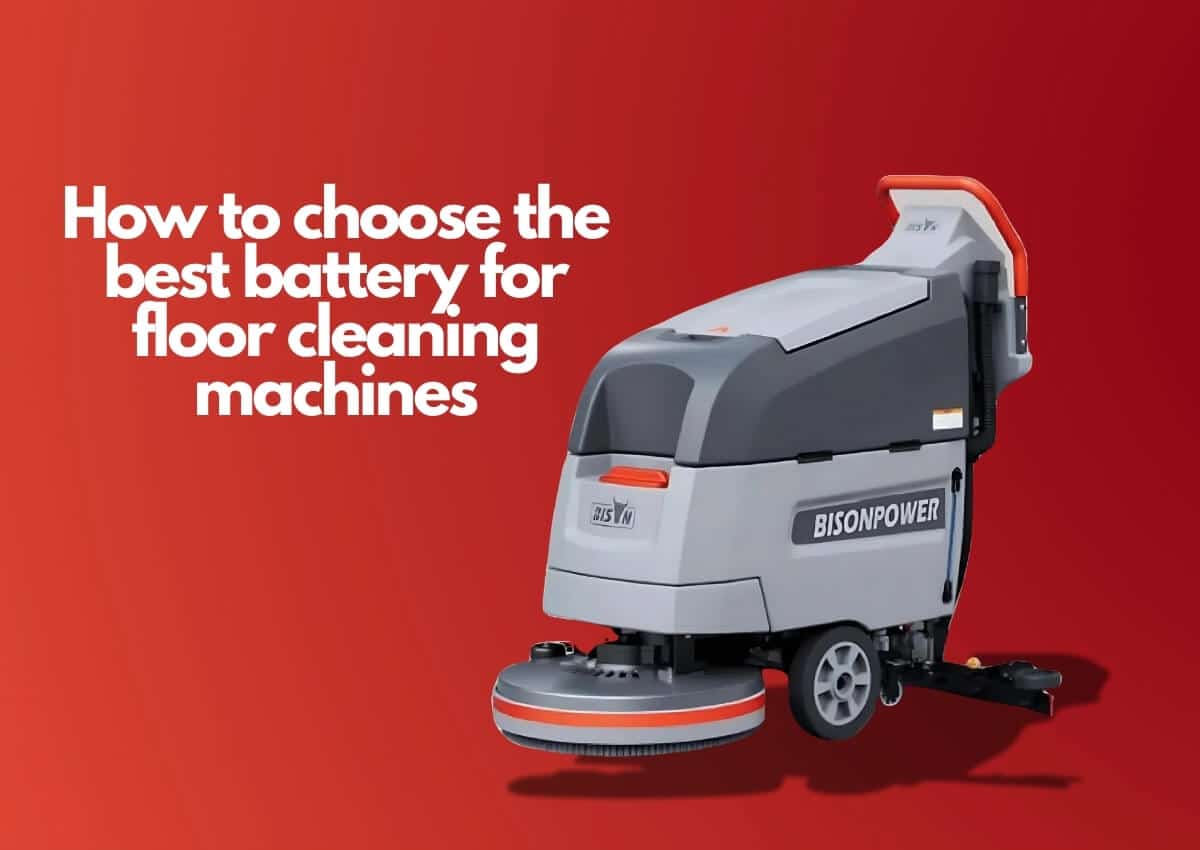
Types of batteries for floor cleaning machines
Lead acid batteries
With a history of more than a century, one of the most common and traditional battery types in floor cleaning machines is the lead-acid battery. There are two primary varieties of these batteries: sealed and flooded. The lead-acid batteries consist of lead dioxide and lead sponge soaked in an electrolyte solution and are capable of operating at around 50% energy efficiency.
Lithium-ion batteries
Lithium-ion is an advanced technology that has become increasingly popular in recent years and is often used in floor cleaning machines with advanced features. Lithium-ion batteries are known for their high energy density and light weight, which makes them perfect for gadgets that need a small and lightweight energy source.
AGM batteries (absorbent glass mat)
A maintenance-free design lead-acid battery variant. They are sealed, prevent leaks, and perform well in different operating conditions. AGM batteries are resistant to shock and vibration, which will increase reliability and durability as a power source for floor cleaning machine.
Nickel-cadmium batteries
This battery has good performance and a long cycle life but is not widely used due to its memory effect which reduces its effective capacity over time and environmental issues.
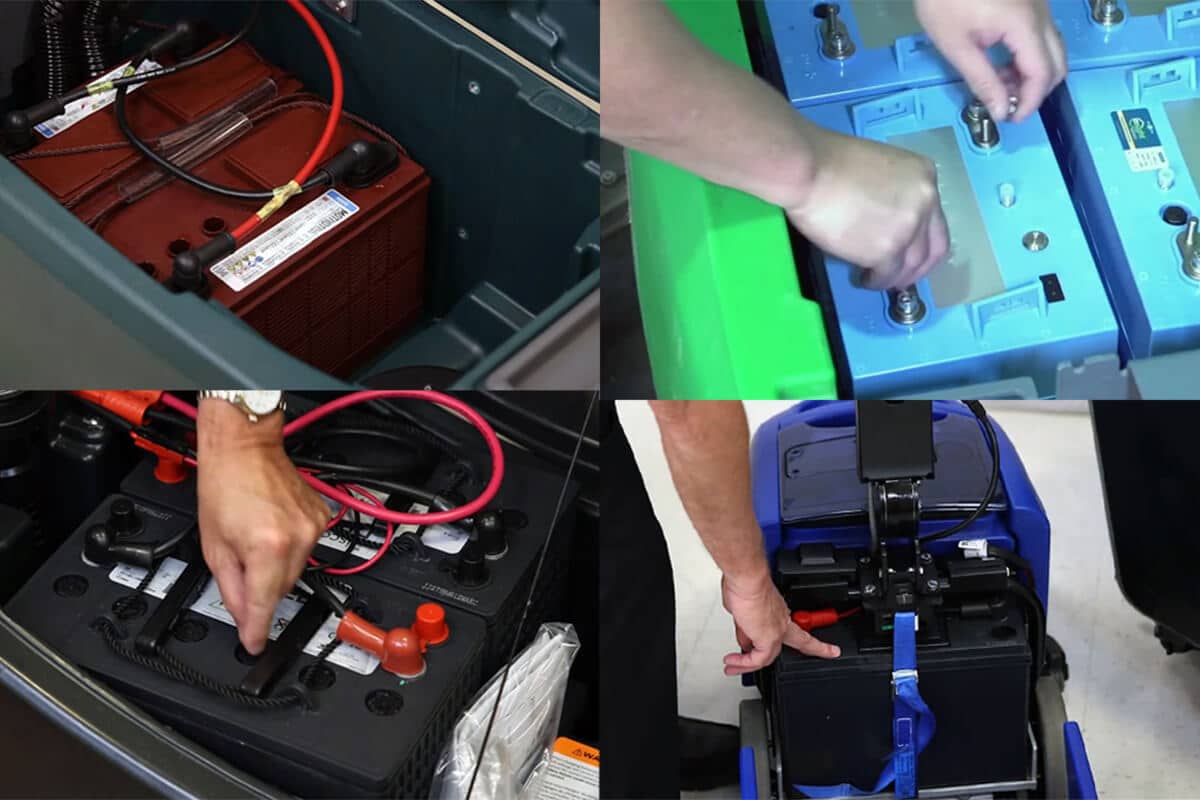
Important things to consider when choosing a battery
To ensure maximum performance and value, choosing the right floor cleaning machine for your floor cleaning machine requires weighing several key factors. Understanding these factors will help ensure that the selected battery is a perfect match for your floor cleaning machine to meet your specific operational needs
Battery capacity and runtime
Battery capacity is measured in ampere hours (Ah), which is an indication of how much current the battery can deliver in a specified period of time. For example, a battery rated at 100 Ah can theoretically supply 100 amps for one hour, or 50 amps for two hours. Higher Ah ratings generally translate to longer runtimes, but it’s also important to match the capacity to the power requirements of the cleaning machine.
It might need more runtime for your cleaning chores if the battery capacity is too low, which would cause frequent interruptions. A longer runtime means that machines can operate continuously without needing frequent recharging, which is particularly important in large areas that require extensive cleaning.
Charging time
Different battery types exhibit varying charging times, which can affect operational efficiency. To reduce downtime, consider how quickly the battery can be recharged. If you need the machine to function quickly, a shorter charging time will benefit you.
Lead-acid batteries: usually take several hours to fully charge.
Lithium-ion batteries: charge significantly faster, with some models fully charging in under two hours.
Battery weight and size
The size and weight of the battery can affect the balance and maneuverability of the floor cleaning machine. Heavier batteries can make machines cumbersome and difficult to handle, especially in tight spaces or when performing detailed cleaning tasks. A lighter battery, such as a lithium-ion option, enhances the ease of movement, allowing operators to navigate easily around obstacles and access difficult areas more efficiently.
In terms of storage and transportation, heavy lead-acid batteries require more robust storage solutions and can also complicate transportation. In contrast, lithium-ion batteries are lightweight and can be more directly integrated into various cleaning equipment configurations.
Comparing battery costs
The initial costs of different battery types, including gel, lead-acid, lithium-ion, and AGM batteries, can vary significantly. Floor cleaning machines with lead-acid batteries are usually the most economical choice upfront. Floor cleaning machines with lithium-ion batteries tend to be more expensive initially; however, their advanced technology often justifies the investment due to lower long-term costs. AGM batteries are also more expensive than regular batteries, but for certain consumers, the added benefits of AGM batteries compared to more advanced battery technology may not make up for their higher cost.
Lifespan and maintenance
Typically, Lead-acid batteries have a lifespan of approximately 3 to 5 years, but this can be shorter with heavy use. Regular maintenance is necessary for lead-acid batteries to operate at their best. For example, check the electrolyte level and ensure the terminals are clean and free of corrosion, and charge regularly to prevent sulfation, which shortens the battery’s lifespan.
Lithium-ion batteries with longer cycle lives can withstand more cycles of charging and discharging before experiencing a discernible decrease in capacity. These batteries can last between 5 to 10 years with proper care. They also need less upkeep because their electrolyte levels don’t need to be checked or replaced regularly.
Environmental factors
Changes in temperature and humidity in the external environment can affect the life and performance of the floor cleaning machine battery. Generally, lithium-ion batteries are more adaptable to temperature changes than lead-acid batteries, and sealed batteries have a longer life in humid environments than unsealed batteries.
Batteries can also affect the environment. Proper disposal and recycling of batteries are essential to mitigate their environmental impact. When your floor sweeper is retired, the battery can be removed. Lead-acid batteries are highly recyclable, with over 95% of their components being recyclable, and typically need to be returned to the supplier or a recycling facility. Lithium-ion batteries are less toxic, but improper disposal can still cause environmental issues. Lithium-ion batteries contain valuable materials such as lithium, cobalt, and nickel that can be recycled by relevant recycling facilities.
Recommendations for choosing the right battery
- Consider whether the floor cleaning machine will be used in a residential, commercial, or industrial setting. For heavy-duty use in commercial and industrial spaces, floor cleaning machines equipped with lithium-ion batteries have an advantage due to their long life and fast charging capabilities, while lead-acid batteries are more suitable for residential users due to cost-effectiveness.
- Run time and frequency: Evaluate the use of the floor cleaning machine. If long run time or frequent use is required, there is no doubt that lithium-ion batteries should be selected.
- Manufacturer’s reputation and support: A good manufacturer will significantly affect the battery and floor cleaning machine experience. For example, BISON, as a trustworthy manufacturer, will provide battery warranty services and comprehensive customer support for floor cleaning machines, so that users have no worries.
Conclusion
By understanding the different types of batteries, such as lead-acid, lithium-ion, AGM, and nickel-cadmium, and the key factors to consider in each, you can make the right choice. By carefully weighing these factors, your floor cleaning machine will have a stronger cleaning operation, higher productivity and harvest the sustainability of cleaning practices.
If you are looking for reliable floor cleaning machine please click to check out BISON’s rich product line! As China’s leading Industrial floor cleaning machine manufacturer (floor scrubber and vacuum cleaner), BISON specializes in providing high-quality floor cleaning machines for dealers and businesses. BISON batteries are strictly tested and comply with industry standards, with ultra-long service life and effective coverage of larger cleaning spaces. In addition, we provide customized services, you can match different battery solutions for your floor scrubber.
FAQs About Best Battery For Floor Cleaning Machines
- Check the battery regularly for signs of damage such as leakage, corrosion, or swelling. Check that the connections are tight and remove dirt and debris.
- Use a dry, stain-free cloth to clean the battery and store it in a dry, cool place.
- Avoid overcharging and follow the manufacturer’s instructions on charging time.
- Frequent battery testing and calibration ensure optimal battery performance. Use instruments to track battery health and make necessary adjustments based on the manufacturer’s recommendations.
- Always handle batteries with care and dispose of expired or damaged batteries in accordance with local laws. Dropping or shaking the battery may cause internal damage. Wear goggles and gloves when handling batteries (especially lead-acid batteries) to avoid spills and leaks.
You might also enjoy
Questions?
Contact Us Today.
Related Products
Find more?
Related Posts
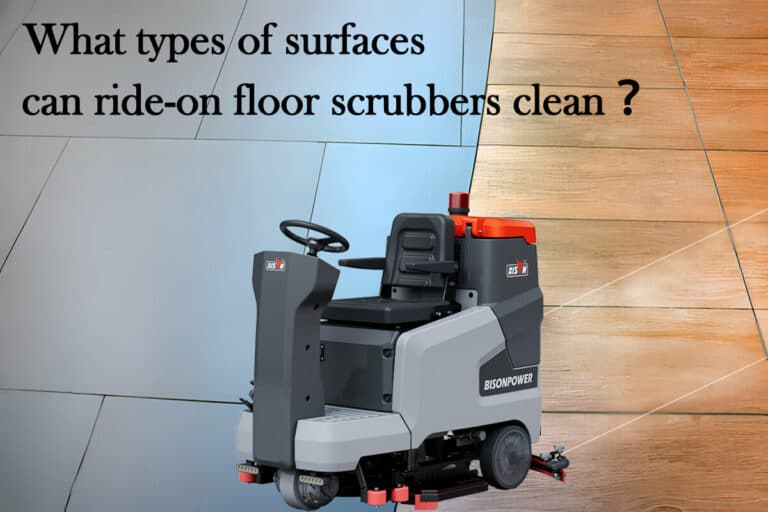
What types of surfaces can ride-on floor scrubbers clean?
The purpose of this blog is to examine the types of surfaces that ride-on floor scrubbers can clean and understand their versatility and applications.
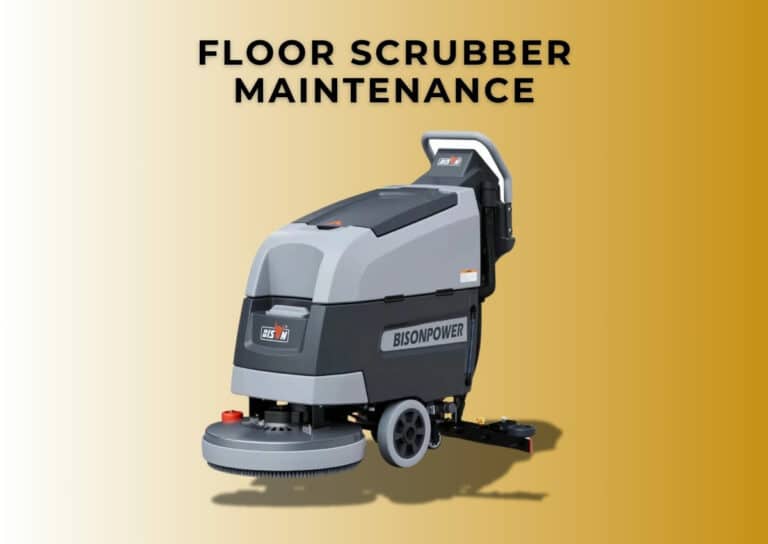
Floor scrubber maintenance: Extending equipment life
This article explains how to maintain a floor scrubber, including daily, weekly, and monthly maintenance procedures, common problems, and troubleshooting.
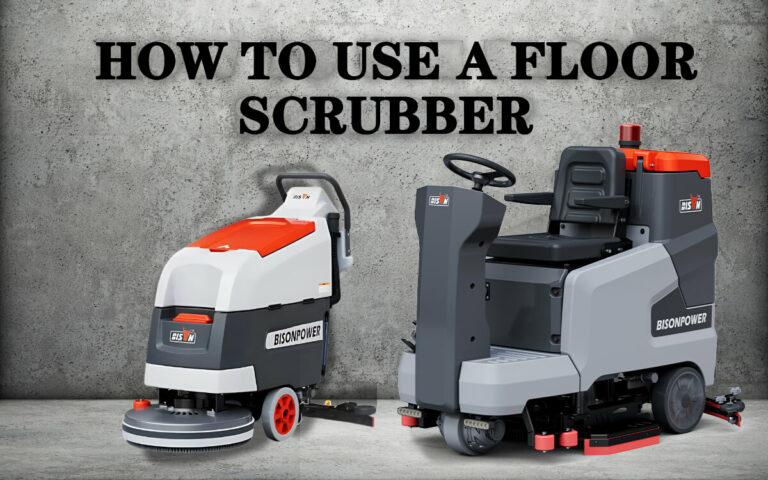
How to use a floor scrubber
In this comprehensive guide, BISON will walk you through everything you need to know about how to use a floor scrubber effectively
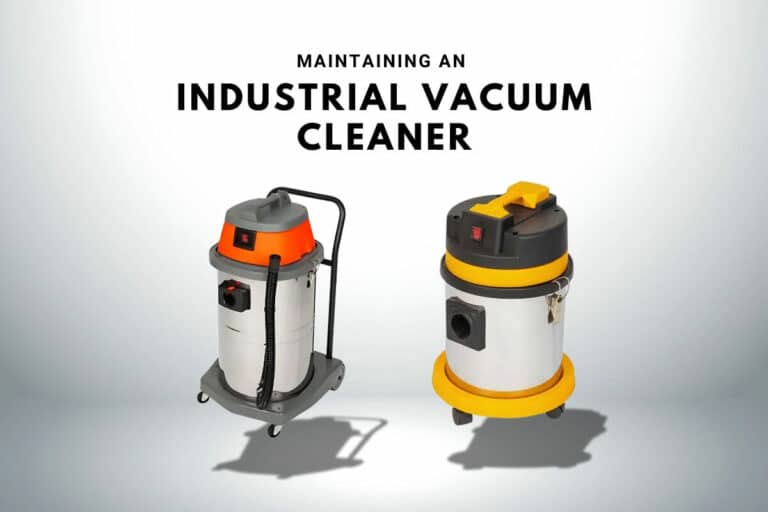
Maintaining an industrial vacuum cleaner
Following the simple steps provided by BISON below will help your industrial vacuum cleaner last longer, run better, and require fewer emergency repairs.
